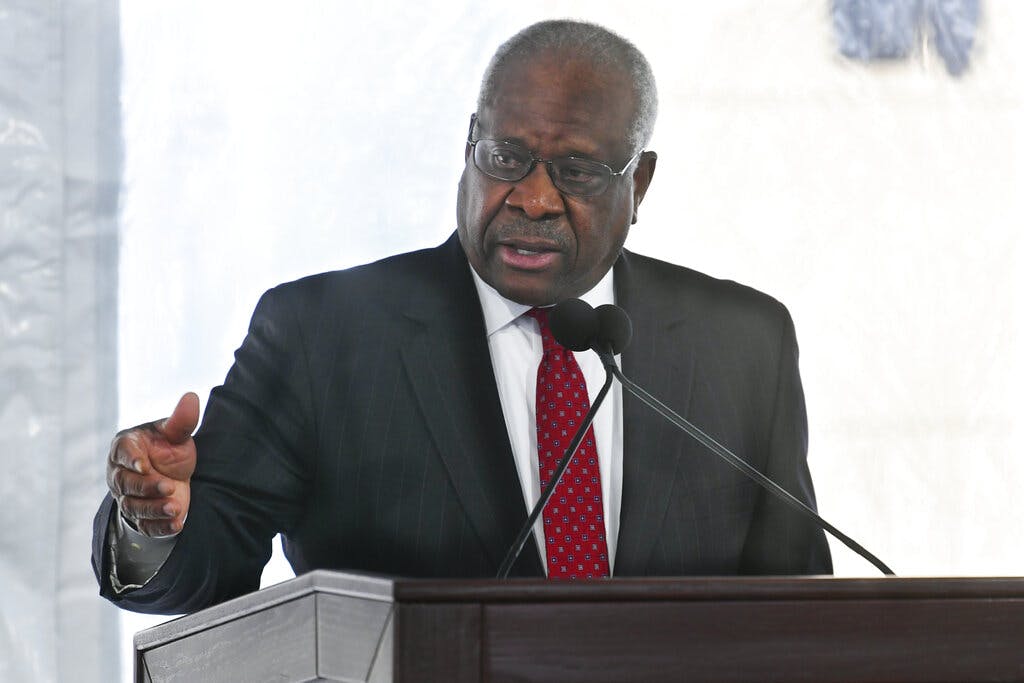Clarence Thomas Failed To Report Real Estate Sale to Donor
Questions have arisen over trips the Supreme Court justice and his wife took at the donor’s expense, but the 2014 real estate deal is the first public evidence of a direct financial transaction between the two.

WASHINGTON — Real estate mogul Harlan Crow purchased three properties belonging to Justice Clarence Thomas and his family, in a transaction worth more than $100,000 that Thomas never reported, according to the non-profit investigative journalism organization ProPublica.
The 2014 real estate deal shines a new light on Justice Thomas’ decades-old relationship with Mr. Crow, a real estate magnate and longtime donor for conservative causes. That relationship and the material benefits received by Justice Thomas have fueled calls for an official ethics investigation.
ProPublica previously revealed that Justice Thomas and his wife Ginni were gifted with hundreds of thousands of dollars worth of annual vacations and trips by Mr. Crow for decades — including international cruises on his mega-yacht, private jet flights and stays at Mr. Crow’s invitation-only resort in the Adirondacks.
Yet the 2014 real estate deal is the first public evidence of a direct financial transaction between the two.
Citing state tax documents and property deeds, ProPublica reported that one of Mr. Crow’s companies paid $133,363 for the home in Savannah, Georgia where Justice Thomas’ mother was living, along with two nearby vacant lots that belonged to Justice Thomas’ family members.
Justice Thomas’ mother remained living in the home, which soon underwent tens of thousands of dollars in renovations.
Federal officials, including Supreme Court justices, are required to disclose the details of most real estate transactions with a value of over $1,000. Justice Thomas would not be required to report the purchase if the property was his or his spouse’s primary personal residence, but this stipulation does not apply to this purchase, which Justice Thomas did not report.
Both Justice Thomas and Mr. Crow have released statements downplaying the significance of the gifts, with Justice Thomas maintaining that he was not required to disclose the trips.
Mr. Crow responded to the latest disclosure with a statement to ProPublica saying that he approached Justice Thomas about the purchase with an eye on honoring his legacy.
“My intention is to one day create a public museum at the Thomas home dedicated to telling the story of our nation’s second black Supreme Court Justice,” the statement said. “Justice Thomas’s story represents the best of America.”
Justice Thomas’ office did not respond to an Associated Press request for comment.
